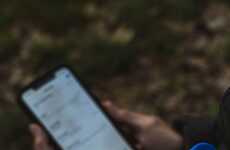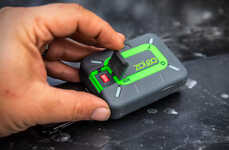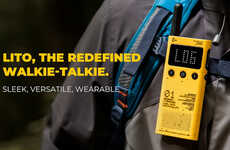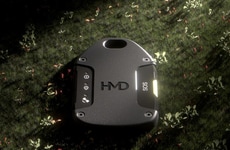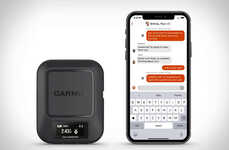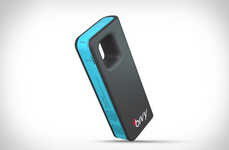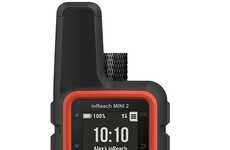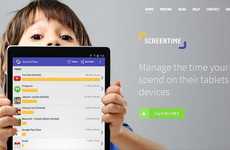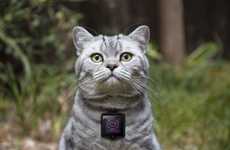
GoTenna by Daniela Perdomo is a Hi-Tech Walkie Talkie
Meghan Young — July 18, 2014 — Tech
References: static.gotenna & fastcompany
GoTenna is a no service texting device that is most easily explained by comparing it to a walkie talkie. It is a slim pen-like gadget that helps people communicate to others who carry one as well. This ensures that even when a person doesn't have access to cellphone service, they are not actually in a blackout scenario.
Created by Daniela Perdomo with the help of her brother Jorge, the no service texting device is Bluetooth-enabled to allow for people to connect. Compatible with any iOS or Android smartphone, its range is highly dependent on location, yet in an open field it can reach about 50 miles. Absolutely impressive, GoTenna was conceived after Perdomo was left communication-less when Hurricane Sandy hit New York back in 2012.
Created by Daniela Perdomo with the help of her brother Jorge, the no service texting device is Bluetooth-enabled to allow for people to connect. Compatible with any iOS or Android smartphone, its range is highly dependent on location, yet in an open field it can reach about 50 miles. Absolutely impressive, GoTenna was conceived after Perdomo was left communication-less when Hurricane Sandy hit New York back in 2012.
Trend Themes
1. No Service Communication - Create devices or software that allow people to communicate without relying on traditional cellular networks, particularly in emergency scenarios.
2. Bluetooth Connectivity - Explore innovative ways to use Bluetooth technology to connect devices and enable communication without relying on Wi-Fi or cellular networks.
3. Distance Communication - Develop technology that allows people to communicate over long distances without the need for traditional networks, potentially opening up new opportunities for remote work and travel.
Industry Implications
1. Emergency Preparedness - The emergency preparedness industry could harness this technology to create more comprehensive communication plans and tools that could be used in disaster scenarios.
2. Outdoor Recreation - The outdoor recreation industry could integrate this technology into their products to offer reliable communication for adventurers exploring remote locations.
3. Transportation - The transportation industry could adopt this technology to improve communication between drivers and dispatchers, particularly in remote areas where traditional networks might be weak or unavailable.
5.2
Score
Popularity
Activity
Freshness

